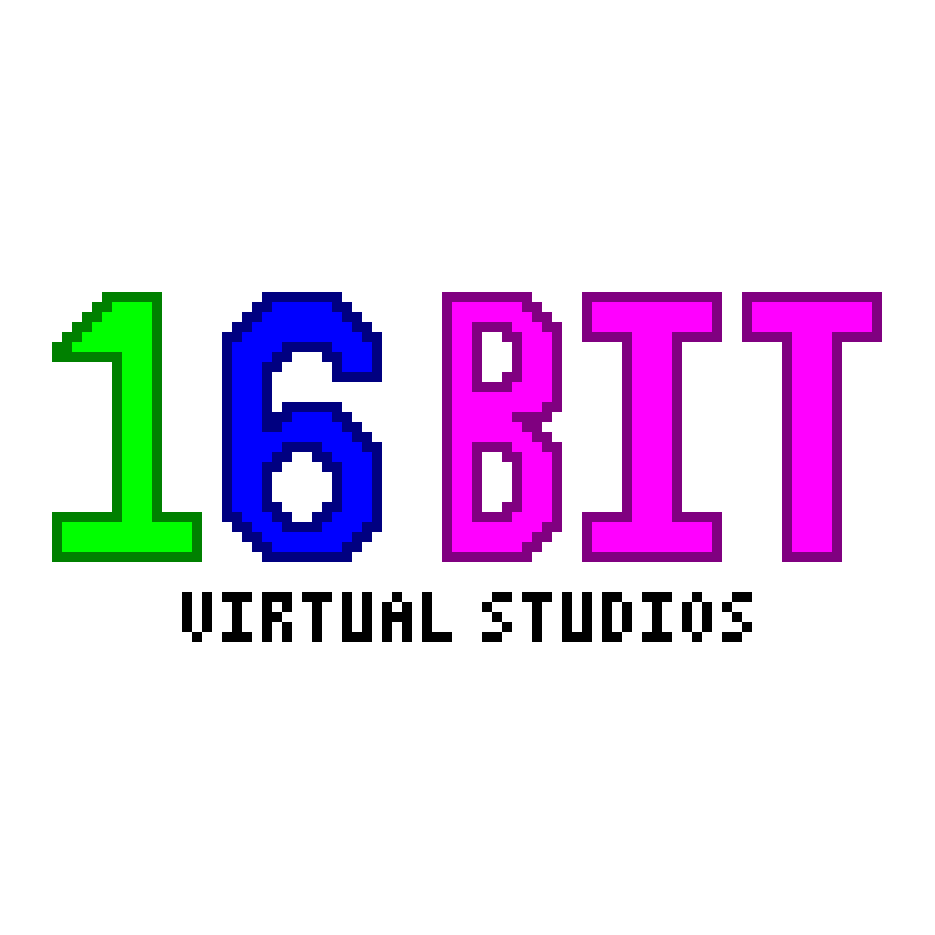On the one hand I like GOG because it has no DRM and has better prices (in my country) than Steam and I have the feeling that on the one hand it follows more the open source philosophy than Steam itself, but Steam has helped enormously to play Windows games on Linux, so I haven’t really made up my mind.
On the one hand I want to buy on Steam for the convenience, but on the other hand I prefer GOG because (in my country) is cheaper. Which platform do you prefer and why?
To give an example, The Binding of Isaac: Rebirth is currently $15 on Steam with regional pricing, but on GOG it’s worth just $6.
I’m all-in on Steam, but I like that GOG exists and I hope it sticks around.
I prefer GoG and will generally purchase from there as no drm and you end up owning your game.
However their client is a bit shit and has been for a long time (GoG galaxy). You really only need it for updates though.
Steam excels for games with lots of mods/workshop. It just works.
I go clientless with GOG, too - but their download speed was atrocious every time I tried. Steam nails that, unfortunately…
Infuriatingly, steams constant updates and massive start up delays (we have multiple users with different accounts) straight up sucks - we’d be better off suffering the one-off download delays, really.
Cloud saves are amazing, but I try and launch stuff not through steam as its just a slow, bloated old mess I can’t stand dealing with (I’m also quite OK with migrating data around computers and keeping it stored safely)
I buy keepers on GOG and then place them on separate drives. On Steam i buy stuff I’m ok with losing. It’s one Gabe away from exploitation shenanigans.
I’ve given up on GOG. No linux client means the whole process of installing/launching games is rather tedious. Also linux game dependencies can be annoying to resolve
Steam on the other hand just handles everything. If it doesn’t work at first, it probably will with proton.
I’d love to support an anti-DRM store, but it’s tough when there is so much friction when actually playing the games
Lutris makes the Linux experience easier
Sure does, though I hope it keeps improving steadily. I’ve been donating to their patreon almost as long as it’s existed.
For me, Lutris works about 50% of the time with no hassle. The other 50% of the time I get an error during installation that I can’t figure out, and I end up using steam or giving up.
Recently it was Diablo 1 that I couldn’t get working on Lutris, but got working pretty quickly with steam
That’s a shame, it’s worked pretty well for me. Probably a handful of games that won’t play ball.
Hopefully it’ll keep improving
Most users complaining about this seem to have been using innoextract or Heroic.
I don’t know what those are, but I’ll look them up.
The linux dependency thing was “Freedom Planet” , an indie retro sonic clone. Trying to use the linux version through GOG, it took me several minutes to figure out and manually install dependencies (which will remain if I remove the game) and even then I couldn’t get sound working.
I shoved the windows binary into steam/proton and it worked like a charm
The heroic launcher is the way to go here. It installs the games in desktop mode and automatically adds them to steam. Compatibility is, for me, the same as if I had installed through steam.
Edit: assumed I was on a steam deck post. On desktop I also use heroic, again, compatibility is great. There’s a checkbox to add to steam automatically if you want.
Thanks for the tip!
Have you tried adding installers/clients to steam as non-steam games, so you can use proton?
Works with windows games but not linux native binaries.
So yes, that’s exactly what I do for games that I own on GOG but not steam. I actually try lutris first, then steam if it doesn’t work.
I prefer GOG, due to being being DRM free.
On Linux I just use Heroic Games Launcher to install the GOG games and launch them. Its just as easy as proton on Steam
Do you use cloud sync with heroic? It sounded somewhat beta/experimental so I use heroic for other storefronts but still use the gog galaxy since it’s sync works great and is built in.
I haven’t tried cloud sync yet. Relatively new to Heroic
Same here. At some point I’ll have to try it out with a game that I don’t mind losing progress on. It sounded like you have to manually specify one or more save directories to get sync to work which sounds pretty flimsy to me.
That seems a bit tedious
Steam, I can install the Steam client without any problems on moat distros, also Valve has done a lot of things to make the Linux gaming better.
Gog doesn’t have a desktop app for Linux, they’re focused totally Windows so I don’t care about it.
If I want “DRM free” games, then I pay for the original version with DRM and then pirate it to play whenever I want.
I do like GOG. All of the games are free of DRM but they still don’t have a fucking linux client. So I refuse to use them. At least Steam natively supports Linux and even improves the linux gaming experience for everyone.
But I believe gog lets you direct download any of the games. No client necessary.
Except you might want a client, both to keep your games in one place, and for extra features it can provide (like cloud saves and updates) - and if you’re on Linux, you’re excluded from that kind of stuff on GOG.
You can directly download your games from GOG inside Lutris, no additional software needed. Same thing for Heroic Games Launcher.
Having an open protocol to get your games is way more important than a dedicated client, because it goes against the kind of artificial market fragmentation we see in the Streaming world with every service having their own dedicated client (times the number of platforms they support) instead of people being able to just have one client for everything.
IMHO in some ways the experience with GOG games in Lutris is superior to that with Steam games and the Steam client because Lutris doesn’t get in your way when all you want is to play the damned game, whilst Steam always fires up the full client and at times even forces you to wait for an update to complete (and in Linux it can get pretty bad because of cached “shader translations” being downloaded, and those can be pretty massive for certain games - for example over 1GB for Borderlands 2) before you can even start the game and even defaults to starting the Steam client on the shop-front and the user has to figure out where in the client configuration they can change that if they want otherwise.
I can see your point, but it’s a pretty weak reason if at all valid, IMHO.
That’s not really my problem with GOG. It’s the fact that they seem to be ignoring Linux. If they are that unwilling to make a Linux client, then I also don’t want to use their platform.
GOG Galaxy on Windows is an awful client so I shudder to think what they would do with a Linux client
800 games on Steam, 200 on GoG. I love the DRM free stuff, but Steam has so many great features its on a whole other level to be honest.
+Steam deck and Linux support is a huge positive.
GoG Galaxy is great, but also doesn’t have a Linux client, which makes it less convenient. Still GoG has so many gems not available anywhere else that I am willing to split my game library just for the classics.
If ypu haven’t tried it, you should try Heroic Games Launcher. Makes it just as easy to launch GoG games on Linux as Steam games
Thanks, yes projects like Heroic or Lutris are great, I use both.
It’s just the fact that one of the all time most requested feature on GoG is Linux support for many years, yet its ignored constantly. Its just disappointing.
GOG, because I don’t care about badges and achievements and other trinkets, but I do care about DRM
A long time ago I finally pulled down my Jolly Rogers and stored my eye patch, due to GoG, since one of the biggest gripes I had with games (all the way back to the 90s) was the DRM in the official bought versions and all hassle and problems it caused (but not in the pirated ones, which made them a superior product) and GoG’s principle since the very beginning was “No DRM” and they never wavered on that.
I also have the practice of downloading the installers for my games and keeping local copies - which GoG lets you easily do but Steam does not - since a long time ago and due to professional experience I became aware that if you don’t have it in your hands you risk losing it for some stupid reason and now the problem is yours (are you really willing pay what it takes to take it to Court?) whilst if you do have it and they want to take it from you, it’s up to them to justify it in a Court of Law (and, lo-and-behold, when they have to prove it rather than just update a row in a database to say you don’t own it, suddenly it’s not worth it for them anymore). I would say the various instances of shops closing and taking the user’s entire (supposedly bought) collection or even just shops outright taking eBooks and films from the collections users had hosted with them and totally getting away with it have more than proven my caution on that.
I did eventually also got Steam and bought some games from them up until the point when a game I bought would not work and they refused to refund it (because I only got around to try it out more than a month after I bought it), at which point I stopped buying games from Steam (curiously, when I moved to Linux I tried that game out again and under Linux it works). Even without that, with Steam I’m always wary because they have more restrictions than GoG and possession of my games in Steam is theirs, not mine.
Anyways, my GoG collection is many times the size of my Steam collection, I’ll always favor buying a game from GoG over Steam if available in both (even if I pay a bit more for it in GoG, as the way I see it a game for which I can download the installer and keep it forever is a higher value product than one were I have to trust Steam for ever and ever to exist, have a client for my OS and not do any shennenigans) and a game only being available in Steam makes it far, far less likely that I’ll buy it.
GoG’s principle since the very beginning was “No DRM” and they never wavered on that.
Sorry to be the bearer of bad news, but they did, most of the claims there are petty but the fact that GoG allows games that use EAC anti-cheat for single player is damning evidence that they are not “DRM free” like they claim.
In almost all of those 25 cases the main single player game is available directly without the need to be online or have Galaxy and the “online” requirement is an incentive to register with them or use Galaxy - not nice and probably very frustrating for gamers with an Achiever or Completionist mindset, but those games will still work 2 decades from now when those servers are long gone, even if missing access to some cosmetic items.
Mind you, your point is well taken and that is worrisome.
It’s still nothing compared to Steam’s requirement of being online to at the very least install and first start of the game (so in 2 decades time when the Steam client doesn’t support any version of the OS supported by those games, they will be unplayable) and how due to Steam themselves having heavilly promoted amongst developers the tight integration of game features with Steam cloud, a dependency on Steam servers is very common even for Indie games, whilst almost all of the AAA stuff comes with their own additional (i.e. on top of Steam itself) sign-in to accounts on the maker’s own servers in order to play the game.
The whole industry has been enshittifying and Steam has actually promoted that kind of shit amongst Indie game makers.
But yeah, GoG letting some of those through is not good and them actually having pushed for Galaxy-only content in some games is pretty bad.
I agree that most of those are non-issue, which is why I specifically pointed at the EAC one.
It’s still nothing compared to Steam’s requirement of being online to at the very least install
This is a requirement everywhere, you need to be online to download the installer from GoG. And before you say you can backup the installer you can also backup the installed game on steam so they’re equivalent.
and first start of the game
Nope you don’t. This is game dependent, and many games don’t require it. I have several games that I backed up the folder and run them, some of which I’ve even copied to computers without steam to play in multiplayer lan mode with the games on Steam.
(so in 2 decades time when the Steam client doesn’t support any version of the OS supported by those games, they will be unplayable)
As long as Steam still supports Linux, and because of the strong backwards compatibility there (especially on wine) you will still be able to play them. If Windows breaks backwards compatibility with current GoG installers you’ll lose your GoG collection just as much.
and how due to Steam themselves having heavilly promoted amongst developers the tight integration of game features with Steam cloud, a dependency on Steam servers is very common even for Indie games, whilst almost all of the AAA stuff comes with their own additional (i.e. on top of Steam itself) sign-in to accounts on the maker’s own servers in order to play the game.
Here’s the thing, they don’t need to promote it, those features are good enough that developers want to integrate them. But lazy developers rely on them which is bad. Some game developers don’t though, it’s not Valve’s fault that a game doesn’t launch without steam, if I submit a game that requires GoG galaxy for offline play It would also not be on GoG’s hands, if it weren’t for the fact that they claim 100% DRM free.
Backing up a previously installed game isn’t even in the same universe as having right there in the main UI of your store the links to download an offline installer: claiming that one is equivalent to the other is just ridiculous.
I can seen you’re a commited fan of Steam and have a tight emotional bond to it, which is fine, just not conducive to having a fair and honest pros-and-cons take about one’s beloved game store in conversation with others.
I’m not really going to dive into a fanboy discussion with you - I’ve made it very clear the one quality of GoG which makes me favour it because I value it more than other things (such as supporting Linux with proprietary solutions) and am not going to, like an idiot, side with a bloody online store as they’re not my family, they’re not my friends and they don’t care about me any more than they care about any other source of money for them.
My point is made, your clarification that it’s less perfect that I thought is also made, the rest is just bollocks.
Why do you think backing up an installer is anything different from backing up a folder? What do you think an installer does that’s so special?
You claim I’m emotionally attached to Steam and claim you use GoG because it’s DRM free, and yet I show you GoG is not DRM free and that Steam has DRM-free games and your answer is that “but that doesn’t count because the folder is not inside an installer”.
It’s okay that you prefer GoG, but it’s not because of them being DRM free because they’re not. It might be because you prefer your hames backed up in installer format, or you might have developed an emotional bond over the DRM free claim. You’re the one making an argument from emotion, because you feel that different methods of backup are better or worse, and stick to GoG despite the reason you claimed being false.
I’m only commenting on the Steam refund part. That’s crazy to me, of all places to return games. The most relaxed has been Steam and never had any issues with them. Even if waiting a month, they normally only care how long you played it, which I think is supposed to be less than 2 hours. For comparison, I tried returning a PS5 game and was immediately denied because they claim as soon as the game is launched once they will not accept it back, which is awful.
That sucks they denied you. It really sounds like they should have let you return it.
I bought god of war on sale. Never played it. And couldn’t get a refund because I was outside the window. Shame on me for having adult responsibilities and not knowing that nvidia were going to remove it from GeForce now. :(
I played all of 7 minutes, which was all took to go all the way to starting a game and the game getting stuck in some kind of freeze loop, and then doing it all over again twice to make sure.
People have lives and sometimes they buy games on impulse and only get around to have time for them later, and Steam does have a record of when players actually got around to download the game and even when and for how long they ran it, so the refund clock should start when people actually tried the game or at least when they downloaded it. That refunds rules don’t actually follow logic but instead something else, probably means that such refunds don’t actually exist driven by genuine will for good customer experience but, more likely, because in some countries there is legislation for online purchases that forces refund windows linked to purchasing time.
I had gotten that game very cheaply and only asked for the refund as a matter of principle, and following this I totally stopped buying games from Steam, so funnily enough even with me favoring GoG over Steam for games available in both, at their 30% revenue cut from sales Steam quickly lost in sales many times that refund amount.
Steam does have a record of when players actually got around to download the game and even when and for how long they ran it, so the refund clock should start when people actually tried the game or at least when they downloaded it. That refunds rules don’t actually follow logic but instead something else, probably means that such refunds don’t actually exist driven by genuine will for good customer experience but, more likely, because in some countries there is legislation for online purchases that forces refund windows linked to purchasing time.
You need to consider that Steam needs to pay the publishers at some point, if they followed that rule that you suggested they would need to sometimes wait years to pay a publisher, which makes it bad for publishers. I believe that 14 days is way too short, and they could easily do 30 days, but at some point they need to send that money to the publisher and at that point refunds are dangerous things. For example, imagine they allowed this and one company released a game which was very cheap with lots of promises, so lots of people buy it, eventually they abandon development so lots of people refund it, and no new sales will come for it, so any refund is a loss for Valve. Also credit cards also have some similar rules and problems, what if the card you bought the game is no longer valid?. This is why Valve needs some rules on time limit to protect themselves from those situations.
All of that being said, the time should be longer, and if it’s an active game that will give them more sells in the future that they can take the money from they should (and usually do) allow refunds over that time limit. It’s strange that yours was denied, I’ve refunded games over a month after purchasing for similar reasons, they did let me know of the policy but proceeded with the refund regardless.
I can get faulty physical goods fixed/refunded by the store up to 2 years after purchase (EU). It’s the store’s problem to get a refund from the manufacturer. The same should be true in case of Valve and a publisher.
Agree, I’m just explaining the reasoning behind it, that’s part of the risks of running a store. That being said even here in the EU you can’t get a full refund months after the purchase for a working product, which is what we’re talking about here so your example is not oranges to oranges.
In the EU you’re definitelly entitled to a full refund if a product does not work as advertised - in English the magic words are “not suitable for purposed” - or if it doesn’t work at all, and there are no or very extended time limits on that (if I’m not mistaken for the “not fit for purpose” cases there are no time limits at all, whilst as pointed out by a previous poster it’s 2 years for non-working products)
However there are carveouts specifically for “digital goods” in those regulations in the EU thanks to lots of lobbying ($$$) by industries in Copyright-heavy areas. No idea if Valve or Steam were amongst the ones participating in that lobbying effort or not.
So if you buy an egg-beater online and it doesn’t actually work as an egg-beater, you’re entitled to a refund with no matter when you find out it doesn’t actually do what it says on the box, but if you buy a game and it doesn’t actually work as a game, you’re shit out of luck.
There are differences of course. Still, Steam’s policy, which is often internationally praised as consumer friendly, is very restrictive from a European perspective.
My decision tree roughly follows these steps:
- Steam for games that have an online multiplayer content, because GoG Galaxy sucks ass on Linux.
- Steam for games that objectively run better on Proton.
- GoG for games that support LAN multiplayer.
I used to also prioritize GoG because it was largely DRM-free, but the Luna partnership is putting doubt on that.
I prefer GOG but not enough to not buy from Steam. And each store has its pros and cons.
As a single player gamer, I love the DRM free nature of GOG, especially for classic games like Rollercoaster Tycoon or SimCity 3000. I have older PCs lying around and being able to play my games on them is very very nice.
On the other hand, updating my game is a chore and GOG Galaxy while cool isn’t polished, and very buggy especially only Linux via Wine. I wouldn’t even consider online multiplayer games unless it had its own server.
Compared to Steam which works with Linux by default, no Lutris or Bottles configuring to get games to work. Updates are seamless and online multiplayer is built into the client. Let alone remote play, steam families, big picture, and all the other features it does.
My only gripe with Steam is the GIANT question mark on what happens to my games when they pull support. I mean I can’t even play my older games any more on my old Windows 7 machine, and its not like Fallout 3 is getting updates.
So my priority is thus: GOG then Steam, if its single player and the price is similar (±$10). Steam then GOG if it makes sense or I need steam features (I.e. I got Stardew Valley on Steam since my SO has it there too and we can play together). Finally if the game is around $5 get it on either, or maybe both if I like the game.
I mostly buy on steam to have my library in one place (without manually adding games) and the free cloud backup. And the Linux support.
GoG galaxy has a built in Steam plugin that updates your library automatically.
I am unfamiliar with this. Link? Does it update galaxy to point to your steam games?
Yes. Just go to your library and browse the options. It’s been ages since I did it, but it’s just inside the client. No downloads needed. Also works for other platforms. GoG galaxy is meant to be a universal launcher.
GOG if I can, because DRM freeness has to be rewarded as much as possible
Steam. I would 100% buy them on gog if Steams cloud saves werent so damn convenient
Gog has cloud saves too if you use gog galaxy.













